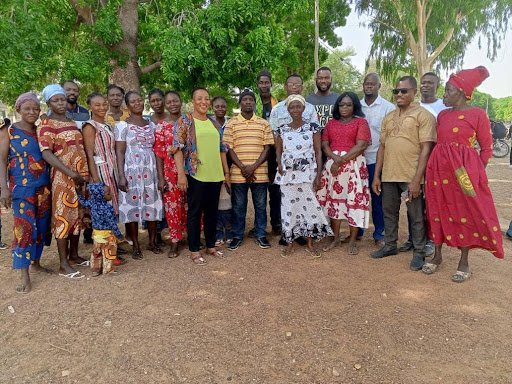General News
Farming Woes: Upper East Smallholders Distressed by Persistent Elephant Raids

Smallholder farmers in the Nabdam and Talensi Districts of the Upper East Region are seeking urgent assistance to combat the increasing challenges posed by elephants that destroy their crops during harvesting seasons.
The appeal was made during a joint project review meeting organized by the Maaltaaba Peasant Women Farmers’ Cooperative (MAPEWFAC) in Bolganga on Saturday.
Nahu Yamg, an overseer of traditional lands from Sakoti in the Nabdam District, explained that elephants migrating from Burkina Faso through the Wildlife Corridors near the two districts pose a significant threat to farmers.
Many smallholder farmers are forced to act as watchmen, sleeping on their farms to prevent elephant-induced destruction.
Ms. Priscilla Noah emphasized the additional burden on farmers due to climate change, leading to food insecurity. The invasion of elephants on farmlands exacerbates the region’s challenges.
The MAPEWFAC also raised concerns about the high cost of tractor services for land cultivation during the farming season and appealed to the Department of Food and Agriculture for assistance.
Participants expressed worry about nomadic Fulani herdsmen destroying shea nut trees, a crucial source of livelihood. In response, the Nabdam District Director of Agriculture, Mr. Rashid Imoro, assured farmers that plans are underway to establish beehives in the area to deter elephants.
Addressing tractor service costs, Mr. Imoro committed to resolving the challenge and urged women to collaborate to reduce expenses. The Executive Director of MAPEWFAC, Ms. Lydia Miyella, highlighted the meeting’s purpose: evaluating the “Empowering Rural Peasant Women Farmers” project’s impact.
She expressed satisfaction that beneficiaries, including single mothers, teenage girls, persons with disabilities, and their households, can now access government interventions to enhance their livelihoods.
Mr. Vincent Subbey, a development consultant facilitating the forum, educated stakeholders on effective advocacy campaigns to bring about positive changes in their livelihoods.
The meeting concluded with a commitment to address the multifaceted challenges faced by smallholder farmers in the region.











![JUST IN: Bibiani-Ahwiaso MCE Dead After A Tragic Accident [VIDEO]](https://enewsghana.com/wp-content/uploads/2022/07/FotoJet-1-5-80x80.jpg)
!["I Am One Of The Black Stars" - Inaki Williams Says As he announces Nationality Switch [WATCH]](https://enewsghana.com/wp-content/uploads/2022/07/Imaki-80x80.jpg)